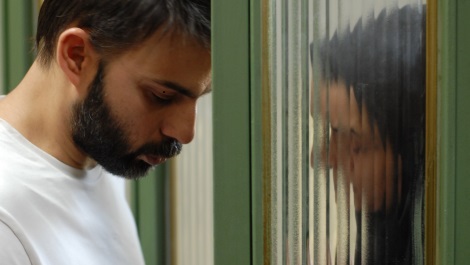The Past reaction: Cannes 2013
Follow-up to award-winning A Separation wows the Croisette.

Showing in competition, domestic drama The Past is the follow-up to Oscar-winning A Separation by Iranian director Asghar Farhadi. A devastating tale of secrets, lies and scalding, squirm-inducing truths, it will surely feature come awards time.
Set in Paris, it sees Ahmad (Ali Mosaffa) return from Tehran after a four-year absence to sign the divorce papers on his marriage to Marie ( The Artist ’s Berenice Bejo), a French woman who balances motherhood with a job in a pharmacy.
Marie lives with her new boyfriend Samir ( A Prophet ’s Tahar Rahim), his young son and her two daughters, one a child and the other, Lucie (Pauline Buret), a teenager who’s ‘acting out’.
After initial resistance, Ahmad agrees to take up residence in the house for a few days in order to spend time with his step-daughters, and soon finds himself acting the eye of a veritable shitstorm.
Samir, it transpires, is married, his wife in a coma. Lucie nurses a terrible secret. Samir’s young son wears a permanent frown and tries to run away.
Acting the mediator, Ahmad is inexorably drawn into the conflict, not least because a host of unresolved issues arise between himself and Marie.
Fluently shot and lit naturalistically, The Past avoids a touristic approach to Paris as it places the protagonists in humdrum environs, Mahmoud Kalari’s camera more interested in faces and body language as the drama plays out.
Bringing all the latest movie news, features, and reviews to your inbox
Favouring scalpel-sharp cuts and in favour of long takes, the editing further conveys the fragmentation of this abrasive family unit, with many conversations switching between one-shots rather than placing the characters in a single frame.
Performances, across the board, are dazzling and fearless, and Farhadi’s script juggles the ensemble with dexterity, ensuring no one is side-lined, no reasons unexplained.
It’s a tough film, certainly, but one that will continue to elevate Farhadi’s place in world cinema, excavating painful truths in a manner that recalls Bergman, Cassavetes, Fassbinder et al.
And, crucially, it is not without tenderness, the final shot offering a glimmer of hope while refraining from outright sentiment.
Jamie Graham is the Editor-at-Large of Total Film magazine. You'll likely find them around these parts reviewing the biggest films on the planet and speaking to some of the biggest stars in the business – that's just what Jamie does. Jamie has also written for outlets like SFX and the Sunday Times Culture, and appeared on podcasts exploring the wondrous worlds of occult and horror.


